-
“Advance Care Planning is a process of reflection and communication. It is a time for you to reflect on your values and wishes, and to let people know what kind of health and personal care you would want in the future if you were unable to speak for yourself.”
Definition retrieved directly from Advance Care Planning Canada.ca (https://www.advancecareplanning.ca/) -
An advance care plan is a non legally binding document used to capture the client’s expressed wishes regarding their care centering on defining what determines their quality of life.
Consultation is a starting point to help client’s explore and organize their thoughts and wishes. The end goal is the client engaging in a conversation with their Power of Attorney or Substitute Decision Maker to prepare them for making decision on the client’s behalf.
An advance care plan is different from a will, living or advanced directive as it focuses on the holistic view of the person including their values and principles around their quality of life.
-
The Advance Care Planning Canada National Poll 2021 Report offers excellent statistics regarding opinions of Canadians around advance care planning.
Specifically, 42% of Canadians thought it was important to start planning young - between 35 and 54 (Advance Care Planning Canada National Poll 2021).
29% of Canadians thought they should do [advance care planning] when they make their wills (Advance Care Planning Canada National Poll 2021). -
No. It is not considered a legally recognized document.
Life has many uncontrollable factors; particularly health, disease and end of life. What is written in the summary is meant to be used as a guide to help families in their decision making. What is better is having the direct conversation with your loved ones.
ACE Planning Company cannot plan for every possible scenario in which critical illness or end of life may occur. But we can include guiding principles about how people wish to live and the values that are important to them and provide the best possible quality of life. -
I bet you would not believe it but legally documented or not, wishes can be overridden by the power of attorney or substitute decision maker in Ontario. These individuals have the final say in how the most responsible physician and care team direct your care.
Many ICU professionals would concur with this observation: That well meaning patients obtain a Living Will to help their loved ones guide their care - but they only wrote it on paper. They likely never had a meaningful discussion about their wishes.The burden of guilt for families is extremely underrated and a powerful director of care. We never want our loved ones to leave us so continuing life support often feels like the right choice in these uncertain times.
I feel strongly in saying families must engage in a personal verbal meaningful conversation about their wishes throughout their lives.
What is written in an advance care plan cannot be binding because illness and death are unpredictable factors. If a client wishes to pass away peacefully, painfree in hospice; but instead passes away from a motor vehicle collision, the advance care planning document cannot be held to a binding expectation. -
Clients will complete a “new client intake form” where there is a long list of discussion topics to create a client-centered experience. A one hour consultation covers 6 to 8 topics.
Topics include but are not limited to:
🩺 Exploring principles and values around quality of life
🩺 Providing education around life support options, goals of care discussions, “do not resuscitate” orders
🩺 If applicable, exploring spirituality, religious beliefs and important cultural considerations
🩺 End of life care wishes -
At this time, ACE Planning Company will refer all questions related to MAID to their trusted family practitioner.
Any questions related to establishing a diagnosis, prognostication of a current diagnosis and / or illness trajectory will not be provided. If the client provides insight from a conversation had with their health care provider or most responsible physician, the ACE Planning Consultant can take that into consideration for their discussion.
-
3 project hours include:
✒️ Free 20 minute consultation✒️ Welcome e-mail with client on-boarding guide
✒️ The consultant prepares a client-centered discussion (based on the new client intake form)
✒️ 60-120 mins: Consultation over videoconferencing technology
✒️ 60 mins: Advance Care Plan summary preparation, review and approval
Final deliverable provided within 10 business days. -
Yes, we encourage it! At the end of the day, we want families communicating with each other - especially with those particularly difficult conversations.
We encourage spouses to attend as they usually are the most common substitute decision maker in Ontario.
We can also offer a family session where two advance care plans are created for each individual in the conversation. -
With permission received by the College of Nurses of Ontario, companies are allowed to record consultations via multimedia as long as informed decision making has been reviewed with the client and consent is obtained. Client interactions will never be recorded without being fully notified.
We are modernizing care by using technology to keep everyone safe. It is very difficult to dispute a recording which is why they have become so popular.
The first reason we use recordings is to facilitate the summary transcription following the consultation and make client’s time more efficient. Consultants will focus on the important conversation at hand instead of taking notes. Also, direct quotes can be included in the summary to capture the client’s expressed wishes verbatim. With something as important as this, you want to make sure it’s captured accurately.
Secondly, and of equal or greater importance, if there ever was a dispute between surviving family members and ACE Planning Company (ie: perhaps the family may challenge the client’s expressed documented wish to donate their organs), we legally may use the recording in hopes of peacefully resolving the dispute and providing clarity to the family.
Recordings will occur via Zoom technology and the file will be stored locally on a portable hard drive. Following PHIPA compliance, the hard drive will be locked away securely. -
The short answer is yes.
Registered Nurses may perform a task within their knowledge, skill, and judgment; and in compliance with their scope of practice and Professional Standards set by their provincial College. They must also operate with compliance according to the Regulated Health Professions Act, 1991.
ACE Planning Company requires employees to complete the continuing education course The Palliative Approach to Care. This course helps health care providers understand patients as whole human beings, provides guidance on communication strategies, and the need to include spiritual and religion observations in their care provision.
Physicians, Registered Nurses and Social Workers have been cited in Canadian literature as providers of advance care planning services to date. I’m sure there are many other allied health care professionals with this service offering as well.
Registered Nurses are limited to what they can discuss, unlike physicians. We cannot diagnose illness or disease, offer treatment, prognosticate a current illness or offer an end of life estimation, amongst many other things.
That being said, Registered Nurses have a lot to offer. Those who are highly experienced and have provided a lot of end of life care and be instrumental in helping you explore challenging questions. -
The primary consultant is licensed by the College of Nurses of Ontario, and is therefore limited to providing care to clients within Ontario. With a plan to expand nationally in the works, we hope to bring ACE Planning Company to all Canadians in the years to come.
-
DNR / D.N.R.: Do Not Resuscitate
ED / E.D.: Emergency Department
EOL / E.O.L.: End of life
GOC / G.O.C.: Goals of care
GTA / G.T.A.: Greater Toronto Area
GTHA / G.T.H.A.: Greater Toronto and Hamilton Area
ICU / I.C.U.: Intensive Care Unit
MD / M.D.: Medical doctor
MRP / M.R.P.: Most responsible physician
POA / P.O.A.: Power of attorney
RN / R.N.: Registered nurse
SDM/ S.D.M.: Substitute decision maker


